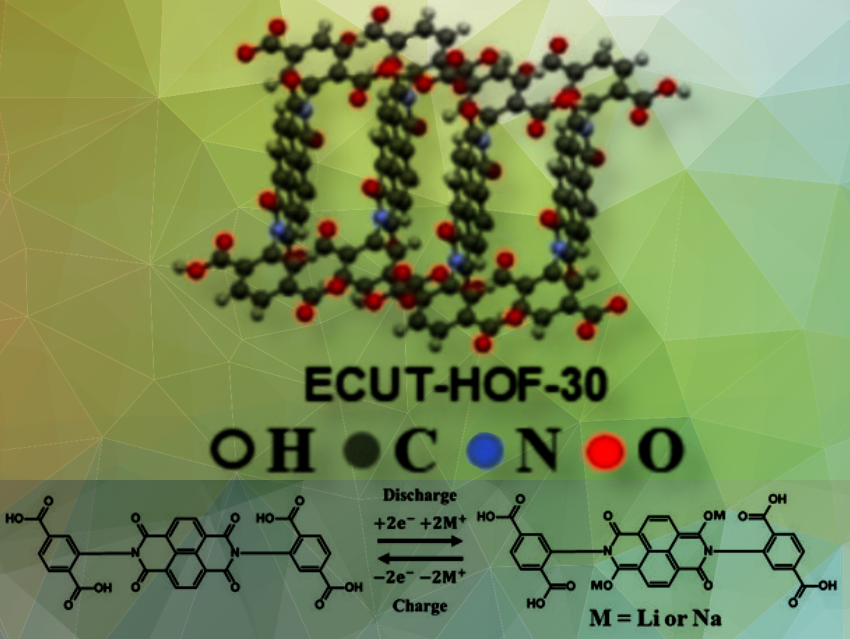Hydrogen-bonded organic frameworks (HOFs) have been widely studied and used in fundamental and industrial areas due to their relatively low weight and high pore volume. In addition, HOFs with redox-active units have recently attracted attention as electrode active materials for energy storage devices as well as other porous organic polymers.
Katsuhiro Wakamatsu and Hirofumi Yoshikawa, Kwansei Gakuin University, Japan, and colleagues have used HOFs as cathode-active materials in lithium-ion batteries (LIBs) and sodium-ion batteries (SIBs). The team used a N,N-bis(2-isophthalic acid)naphthalenediimide (ECUT-HOF-30), which is a relatively light HOF and shows good redox properties due to the redox-active imide units in heterocyclic compounds, among various HOFs as cathode active materials.
ECUT-HOF-30 successfully demonstrated better cycle stability and battery capacities in both LIBs and SIBs. In addition, the capacities, cycle stability and rate performances of SIBs were better than those of LIBs. This means that ECUT-HOF-30 has good potential as cathodes in SIBs. The team suggested that heterocyclic HOF compounds with redox-active imide units can be used to realize high-performance energy storage devices.
- Application of Hydrogen‐Bonded Organic Frameworks with Redox‐Active Imide Units as Cathode‐Active Materials in Lithium‐ and Sodium‐Ion Batteries,
Katsuhiro Wakamatsu, Yoshihiko Yamaguchi, Soichiro Furuno, Heng Wang, Hirofumi Yoshikawa,
ChemElectroChem 2024.
https://doi.org/10.1002/celc.202300607




